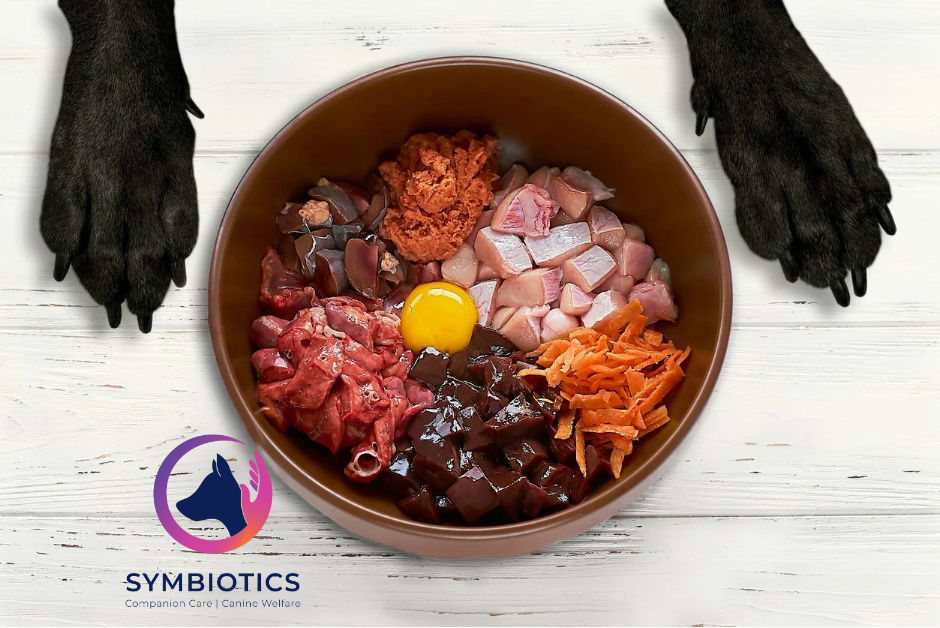Feeding eggs to your dog
- Toni

- Mar 31, 2024
- 4 min read
Updated: Nov 10, 2025
Eggs have been hailed as the "wonder food". They offer a simple, inexpensive opportunity to increase the quality of your dog's diet. They are full of Omega 3 and other vital nutrients, and today, we take a look at feeding eggs to dogs and puppies. Raw or cooked? how often? and what the benefits are.

Can you feed eggs to your puppy or dog?
Yes! dogs and puppies can eat a variety of eggs, including:-
Chicken, duck, goose, pheasant, pigeon and quail
Eggs can be served cooked or raw and both are discussed below
FEEDING RAW EGGS
Can they be fed to dogs raw?
Yes, they can be fed raw, shell and all! It is far better to feed fresh eggs to your dog. But if you are feeding fresh eggs to your dog, clean the shell with plain water and kitchen paper, to remove any debris before serving. In the UK, shop bought eggs have already been cleaned without using chemicals.
How to serve a raw egg?
Just crack the egg against the side of the dog bowl and drop the egg and the shell into the dish. You can crush the shell in your hand a little to make it easier for small dogs or puppies to eat,

Some dogs may wish not to eat the shell. If this is the case with your dog, respect its wishes and do not try to false the dog to eat it. Dogs are good at self-selecting the food they need.
How often can dogs have eggs?
Small Dogs: up to 1 small egg per day.
Medium Dogs: 1 medium to large egg per day
Large Dogs: 1 medium to x-large egg per day.
Giant breeds: 1 to 2 medium to x-large egg.
For tiny dog breeds you can crack the egg in a bowl and whisk to serve a portion of the egg, with the equivalent portion of egg shell. So, half an egg, half a shell. The rest can be stored in a glass container in the fridge until the next day.
FEEDING COOKED EGGS TO YOUR DOG

Eggs can be fed boiled, scrambled or poached in plain water, but remember to let the egg cool down before serving to your dog, Never serve cooked egg shells to toe dog, you can still add the raw shell to your dogs dinner.
BENEFITS OF EGGS FOR DOGS
Eggs are nutritionally a great complete food, packed with essential bioavailable nutrients in a mineral-rich package. Every part of an egg can contribute to your dog or puppies health. The egg yolk, egg white, eggshell membrane and the eggshell. They offer a complete source of protein, essential fatty acids, essential minerals and vitamins for your dog.
Protein - with all 9 essential amino acids:
Cysteine, histidine, isoleucine, lysine, methionine, phenylalanine, threonine, tryptophan and valine.
Carotenoids: Lutein and Zeaxanthin, important for eye health:
Micro and macro nutrients in eggs support overall health in your dog or puppy:
Essential fatty acids; Omega-3 & Omega-6
Essential bioavailable minerals;
Calcium and Copper
Iodine and Iron
Magnesium, Manganese and Molybdenum
Phosphorus and Potassium
Selenium and Sodium
Zinc
A rich source of essential bioavailable vitamins
Vitamin A (retinol)
Supports your puppy's growth. Important for eye health it also helps maintain skin health, bone development and bone health.
Vitamin B1 (thiamin)
Supports growth, appetite, digestive health, immune system and nervous system function. B1 also supports healthy stress response.
Vitamin B2 (riboflavin)
Is essential for red blood cell and eye health.
Vitamin B3 (niacin)
Supports cell health, regeneration and DNA repair.
Vitamin B5 (pantothenic acid)
Is essential for conversion of food to energy, cellular, digestive and skin health.
Vitamin B6 (pyridoxine)
Supports brain, heart, neurological health and more.
Vitamin B7 (biotin)
Is essential for conversion of food to energy, supports fur, nail and skin health.
Vitamin B8 (Inositol)
An antioxidant that helps combat the damaging effects of free radicals in the body
Vitamin B9 (folate)
Supports blood health, cell health and DNA
Vitamin B12
Is essential for conversion of food to energy, heart health, cellular and nerve health.
Vitamin D
Is essential to normal growth as Vitamin D aids the body's absorption of calcium and phosphorus.
Vitamin E
Is an important antioxidant necessary for growth, muscle function, heart health and central nervous system function.
Inositol (sometimes referred to as Vitamin B8)
Inositol is an important antioxidant that helps combat the damaging effects of free radicals in the body.
Inositol supports metabolic health and helps regulate mood.
Choline, an essential micronutrient:
A dog's body doesn't produce enough choline on it's own. It's important to provide choline-rich foods to your dog. Eggs are an important source of choline.
EGG SHELL MEMBRANE (NEM)
The membrane of the eggshell is very good for canine joint health and so if your dog does not eat eggshells, the membrane is easy to peel away from the raw shell and can still be added to your dog's diet.
CONCLUSION Eggs are one of the best foods available and provide so much to a dog's diet. The source of the egg that you feed will provide different levels of the separate nutrients. In the UK, hen eggs are the most popular and ready available. Always consider the welfare of the hen that produced the egg. The better the welfare, the better the egg too.
Last edited 11/2/2025


